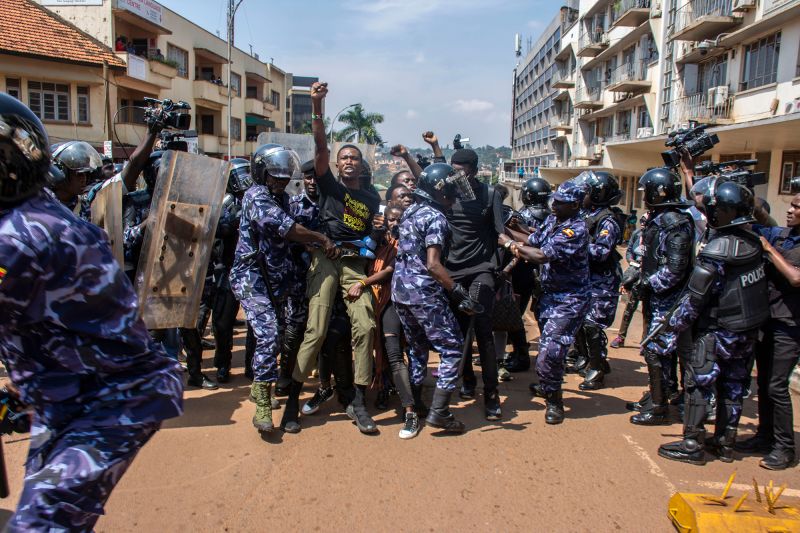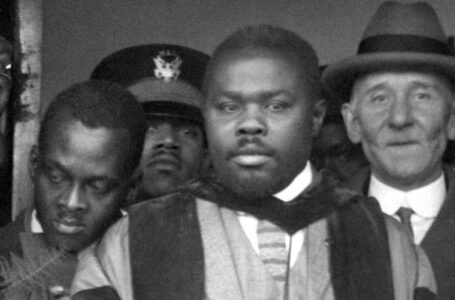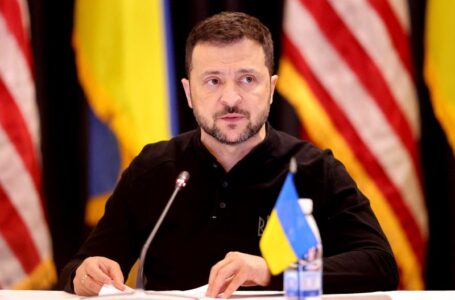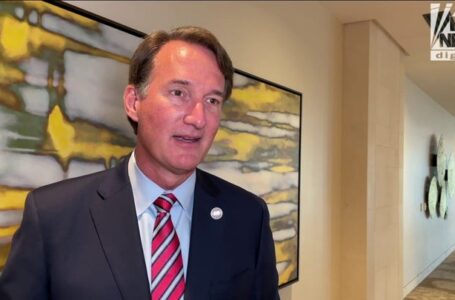SEN BERNIE SANDERS: My plan for the Trump presidency. What I will–and won’t–do
African cities sitting on ‘keg of gunpowder’ asgrowing youth anger fuels unrest


In some of Africa’s major cities, young people are experiencing a summer of discontent as anger and frustration erupt over corruption, the soaring cost of living, and widespread unemployment.
The protests began in Kenya last month, where young people – particularly Gen Z – engaged in six weeks of demonstrations over an unpopular bill that sought to raise taxes. At least 50 people died as a result.
President William Ruto retracted the bill and announced a shake-up of his cabinet following pressure from demonstrators who remained on the streets, saying they were unhappy about alleged corruption and police brutality in his government. There have been some calls for him to resign.
Kenya, East Africa’s dominant economy, has grappled with escalating living costs that have spiked food prices and other commodities, amid a rising unemployment rate among the country’s youth. The nation also owes billions of dollars in foreign and local debts, spending a sizeable chunk of its revenue repaying its creditors.
The unrest swiftly spread to neighboring Uganda, where citizens attempted to march to the parliament in the capital, Kampala, on July 23 and 25. Security forces responded with a heavy clampdown, detaining more than 100 people, according to police reports.
Those protesting are angry about widespread government corruption in the country, which loses an estimated Sh. 10 trillion ($2.7 billion) in public funding to graft annually, according to Ugandan anti-corruption body the Inspectorate of Government (IG).
Radio host Faiza Fabz, who joined the protests, said on social media that the demonstration was an “opportunity to change the course of our nation” and “force the leaders to finally listen to us and demands of the people.”
Some of those demands include “auditing the lifestyle” of MPs “and publicizing it,” and the resignation of lawmakers involved in corruption scandals, according to a newspaper front page she shared on social media platform X. Fabz was among the demonstrators detained by the Ugandan police.
Uganda has witnessed some stability in its economy following “an oil-related construction boom and robust growth of agriculture,” according to the World Bank.
But it has also grappled with endemic corruption, scoring 26 last year on Transparency International’s Corruption Perceptions Index, which ranks countries on a scale of zero to 100, with zero meaning “highly corrupt” and 100 signifying that a country is “very clean.”
Several high-profile Ugandan politicians were sanctioned by the United States and the United Kingdom for corruption earlier this year, including the speaker of the country’s parliament, Anita Annet Among, whom the protesters called on to resign.
President Yoweri Museveni, 79, who has ruled Uganda with an iron fist for nearly four decades, warned the protesters they were “playing with fire,” and later praised the security forces for “foiling” the protests, and claiming without evidence that they were orchestrated with “funding from foreign sources.”
‘Reality check for African leaders’
In Africa’s most populous country, Nigeria, young people are also planning an “end bad governance” march on August 1.
Young Nigerians calling for protests want a respite from the country’s economic woes as inflation skyrockets to more than 34%, its highest level in nearly 30 years, causing one of the nation’s worst ever cost-of-living crises. Unemployment in the West African nation has also been on the rise, its data office said in its most recent report, in February.
They also want the country’s security problems curbed amid a rise in kidnappings for ransom, among other demands, which include “reducing the cost of living, curbing insecurity, reducing the cost of governance, electoral reform, judicial reform, and constitutional reform,” according to a signed statement from a group of civil society organizations.
Human rights lawyer Inibehe Effiong said in an interview with Arise Television on Sunday: “People are tired, people are hungry…. Why does the president have to wait till the 1st of August? He can start this moment to effect the changes that people are asking for.”
The last time a major protest occurred in Nigeria, security forces opened fire on unarmed protesters who were peacefully demonstrating against alleged police brutality, resulting in deaths and injuries.
Fearful of a repeat of the 2020 #EndSARS protests, Nigerian President Bola Tinubu has called for calm and implored citizens not to take to the streets.
He warned that the planned protest “could degenerate into violence and set the country backwards,” alleging that the upcoming march was being instigated by citizens with dual nationality.
“The sponsors of protests do not love our country … They do not understand citizenship. They have alternative passports. They are in different parts of the world holding meetings virtually,” the president said.
A Nigerian defense spokesman said the planned protest could replicate deadly demonstrations in Kenya.
“The context of this planned protest is to shadow what is happening in Kenya … and … what is happening in Kenya … is violent … and remains unresolved,” spokesman Edward Buba said at a press conference, adding that “the military will not stand by and allow anarchy to befall our nation.”
For Gift Mugano, an adjunct professor of economics at South Africa’s Durban University of Technology, the youth uprisings are “a reality check for African leaders.”
He added that “as long as there are no economic opportunities, and governance and rule of law are not at their best, we will not have stability in the continent.”
Mugano advised African governments against cracking down on protesters, telling them to instead “attend to issues affecting the continent, create economic opportunities and improve governance.”
A ‘growing discontent’
“There is a growing discontent among young people (in Africa) and those who are in charge should pay attention to this movement,” Thior said.
He added that “young people are impatient, and they want things to change at a very rapid pace.”
According to Thior, who leads the Senegalese media ethics organization CORED, youth activists across the continent are connected through social media, “and that’s why what is happening in Kenya can affect people in Uganda and even here in West Africa.”
Youth-led uprisings against corruption and bad governance have also erupted in other parts of Africa, including Senegal and Ghana, in recent months.
Protests broke out in Senegal in February after its then-president Macky Sall announced a delay in the country’s scheduled elections. Following demonstrations that left at least three protesters dead, Sall backtracked on the delay after the Senegalese constitutional council ruled against his decision to postpone the vote.
The ruling coincided with the release of many political detainees, including current President Bassirou Diomaye Faye, who was released just a little over a week before the election.
In the preceding months, Ghana, Senegal’s fellow West African state, saw days of anti-government protests as demonstrators railed against economic hardships and unemployment.
Former Nigerian President Olusegun Obasanjo warned that the continent was on the edge of chaos.
“There’s virtually no exception (country) in Africa where the youth are not angry. They are unemployed… unempowered and they see nothing other than hopelessness,” he said.
Obasanjo warned that “if no adequate attention is paid to the needs of the youth in Africa … it will be very ugly for all of us.”











